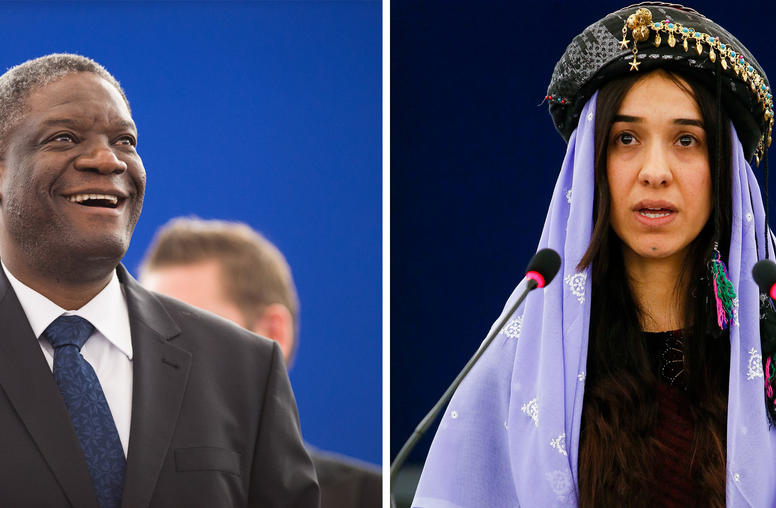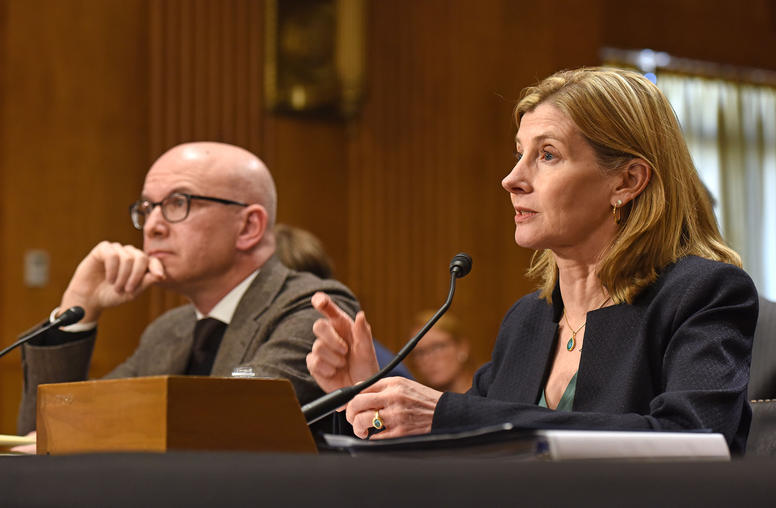Why Women Peacebuilders Matter | Iowa City Foreign Relations Council - Iowa City Public Library
The U.S. Institute of Peace (USIP) presents the Women Building Peace Award (WBPA) annually to an extraordinary international woman peacebuilder.
Experts from the U.S. Institute of Peace provide the latest analysis and perspective on the world’s critical hot spots, U.S. and global security and issues involved in violent conflict, based on the Institute’s work on the ground and with key individuals, governments and organizations. They give interviews and background briefings to journalists and write for news outlets around the world.
The U.S. Institute of Peace (USIP) presents the Women Building Peace Award (WBPA) annually to an extraordinary international woman peacebuilder.
The use of sexual violence as a weapon in conflict is as old as the Bible – Deuteronomy 21 states that a victor in battle who "hast a desire" for a "beautiful woman" among the captives can "bring her home to thine house." And it is as timely as the current conflicts raging ...
Attorney General Merrick B. Garland recently reversed a 2018 Trump administration decision that had made it almost impossible for people to win asylum in the United States if they were fleeing domestic violence in their home countries...
The 20th anniversary of the Women, Peace, and Security (WPS) agenda comes at a time of great global turmoil. The rise of authoritarianism and extreme rightist ideologies around the world have generated backlash against gender equality and the idea of involving women in...
Six months into her job as the United States ambassador-at-large for global women’s issues, Kelley Currie has done little to demonstrate that she can restore American leadership on women’s rights while reporting to an ideologically driven administration known...

The Nobel Peace Prize awarded today to Nadia Murad and Dr. Denis Mukwege honors their work on behalf of women victimized amid violent conflict and will strengthen that effort worldwide. Murad, from Iraq’s Yazidi minority, survived abduction, abuse and rape by extremists of the Islamic State group and has campaigned internationally on behalf of victims of war. Mukwege, a physician from the Democratic Republic of Congo has treated thousands of victims of sexual violence amid the brutal warfare in the Democratic Republic of Congo.

The connection between violent conflict and the famines that risk the lives of 20 million people in multiple countries of Africa and the Middle East was the topic of one of four appearances by USIP experts on Capitol Hill last week.
... from conservative, patriarchal societies—for the enormous loss of power and identity that can come from transitioning into a new, more egalitarian society, says anthropologist Kathleen Kuehnast, senior gender advisor at the United States Institute ...
According to Kathleen Kuehnast of the United States Institute of Peace, “Out of some 585 peace treaties drafted over the last two decades, only 16 percent contain specific references to women.” Meanwhile, UN Women's 2012 report, Women's Participation ...
Kathleen Kuehnast, senior gender adviser at the congressionally funded, independent United States Institute of Peace, said policymakers hoping to challenge violent extremism should understand fault lines involving population distribution, age and religion.